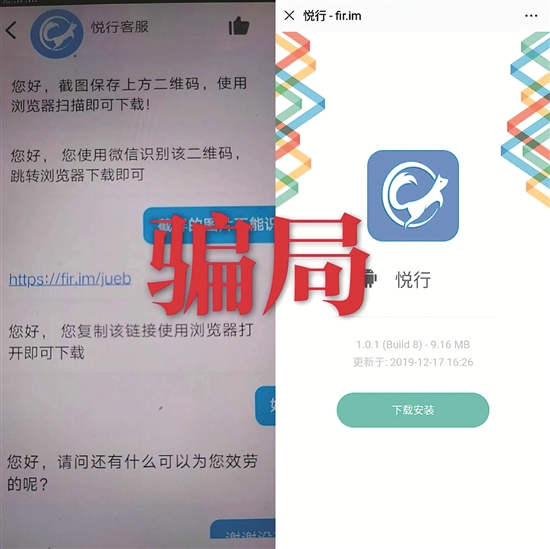高中英语语法通霸2020版之动词的时态
href="">第一章 动词的时态
英语中不同时间和方式发生的动作或状态要用谓语动词的不同形式来表示,这种表示动作或状态发生时间和方式的动词形式称作动词时态。时态的种类如下,但在初高中阶段,表格右下角加注的四种时态一般不需要掌握。
href="">第1讲 一般现在时
一般情况下,表示现在正在发生的动作,用现在进行时;表示过去发生的动作用一般过去时,表示将来要发生的动作用一般将来时;表示过去、现在、将来都发生的动作用一般现在时。看下图所示。
She is crying now. (现在进行时)
She cried loudly yesterday. (一般过去时)
I will get up at six tomorrow. (一般将来时)
We have breakfast at seven every day. (一般现在时)
ref="">考点1. 一般现在时的概念及谓语构成
A. 一般现在时的概念
经常发生的动作或存在的某种状态。
B. 常用时间状语
always, usually, often, sometimes, every week (day, year, month…), once a week, etc.
C. 谓语构成
①系动词be要用:am, is或 are
②实义动词:用原形或第三人称单数形式
They usually go to school by bike.
I take the medicine three times a day.
She helps her mother once a week.
Mary’s father is a policeman.
ref="">考点2. 动词的第三人称单数
A. 什么是第三人称单数
在一般现在时中,如果句子主语是单数第三人称(参看P.210第1讲),谓语动词一般要用第三人称单数形式(即一般在词尾加-s或-es,简称“单三”形式)。
I/ You/ We/ They plant trees in spring.
He/ She/ Tom/ My father plants flowers in the garden.
B. 动词第三人称单数变法规则(参看P.256考点7)
C. 动词第三人称“单数”要与名词“复数”区分开来
看这个句子:He watches TV every day.
曾有同学说:“老师,这句话错了。he 后应跟单数形式,你怎么把watch用成复数形式watches了呢?应当是:He watch TV every day. /They watches TV every day.”
敢问敢说就好!记住:同是在后面加-s或-es,加在名词后面是名词的复数形式,如:bikes, boxes。加在动词后面是动词的第三人称单数形式,如:catches, goes。
练习1. 用括号内动词的适当形式填空
1. We/You (你们)/They ______ (go) to school every day.
2. Tom and Mike ______ (like) playing basketball.
3. His children ______ (enjoy) watching cartoons.
4. Tom ______ (help) his mother with housework on Sunday.
5. My brother ______ (wash) his clothes himself.
6. Your sister ______ (have) a teddy bear.
7. Their son ______ (make) his bed by himself.
8. He / She ______ (keep) a diary every day.
ref="">考点3. 一般现在时的否定句及疑问句的构成
A. 一般现在时否定句的构成
① 谓语中有系动词am/is/are时,在其后加not。
② 谓语动词是实义动词原形时,在其前加don’t;若谓语动词是实义动词第三人称单数形式,则用doesn’t,同时实义动词恢复原形。
B. 一般现在时一般疑问句的构成
① 谓语中有系动词be的,把系动词be提至句首;
② 谓语动词是行为动词原形的,在句首加助动词do;若谓语动词是实义动词第三人称单数形式,则在句首加does,同时谓语动词恢复为动词原形。
They are in Shanghai now.
→They are not in Shanghai now. (否定句)
→Are they in Shanghai now?(一般疑问句)
→Yes, they are./No, they aren’t.
They like playing football.
→They don’t like playing football. (否定句)
→Do they like playing football? (一般疑问句)
→Yes, they do./ No, they don’t.
He does his homework at home.
→He doesn’t do his homework at home. (否定句)
→Does he do his homework at home? (一般疑问句)
→Yes, he does./ No, he doesn’t.
练习2. 把下面句子变为否定句、一般疑问句并作肯定和否定回答,然后对画线部分提问
9. She goes shopping on Sunday.
→She ______ ______ shopping on Sunday.
→______ she ______ shopping on Sunday?
→Yes, she______./ No, she ______.
→When ______ she ______ shopping?
10. They have lunch at school on weekdays.
→They ______ ______lunch at school on weekdays.
→______ they have lunch at school on weekdays?
→Yes, they______./ No, they ______.
→Where______ they have lunch on weekdays?
11. He has a walk in the park every day.
→He ______ ______ a walk in the park every day.
→______ he ______ a walk in the park every day?
→Yes, he______./ No, he ______.
→Where______ he ______ a walk every day?
ref="">考点4. 什么情况下要用一般现在时
A. 表示经常性或习惯性的动作,常与always, often, never, every day等频度副词连用
1. 【2010辽宁】 I ______ all the cooking for my family, but recently I’ve been too busy to do it.
A. will do B. do C. am doing D. had done
B. 表示主语现在所具备的个性、能力或特征
Ann enjoys listening to the radio.
Miss White speaks Chinese very well.
2. I ______ playing basketball, but I haven’t played for years.
A. have liked B. liked C. like D. had liked
3. 【浙江】This machine ______. It hasn’t worked for years.
A. didn’t work B. wasn’t working
C. doesn’t work D. isn’t working
4. 【1996全国】—Can I help you, sir?
—Yes, I bought this radio here yesterday, but it ______.
A. didn’t work B. won’t work
C. can’t work D. doesn’t work
5. 【2017江苏】He’s been informed that he ______ for the scholarship because of his academic background.
A. hasn’t qualified B. hadn’t qualified
C. doesn’t qualify D. wasn’t qualifying
href="">C. 表示客观事实、普遍真理;或用在格言警句中
此时,即使主句是一般过去时,宾语从句仍用一般现在时。(参看P. 99考点1)
Columbus proved that the earth is round.
哥伦布证明地球是圆的。
“I soon learned how everything works in America,” the grandfather told the friend.
我不久就得知了在美国事情是如何运转的。(“得知”是过去得知,所以用过去式,而在美国“事情以何种方式运作”确是长期不变的客观事实,所以用一般现在时。)
6. Darwin proved that natural selection ______ the chief factor in the development of species.
A. has been B. had been C. is D. was
7. 【2009福建】According to the literary review, Shakespeare ______ his characters live through their language in his plays.
A. will make B. had made C. was making D. makes

8. Months ago we sailed ten thousand miles across this open sea, which ______ the Pacific, and we met no storms.
A. was called B. is called
C. had been called D. has been called
9. 【2012全国新课标】“Life is like walking in the snow,” Granny used to say, “because every step ______.”
A. has shown B. is showing C. shows D. showed
href="">D. 表示按规定、时间表、计划或安排要发生的动作
Are you on duty next weekend? 下周末你值班吗?
The train leaves at five. 火车五点开出。
注意:在此用法中,句中通常有具体的时间状语。
10. Look at the timetable. Hurry up! Flight 4026 ______ off at 18:20.
A. takes B. took C. will be taken D. has taken
11. —When ______ the next train leave for Boston, please?
—Usually at 13:15 but because of a small accident on the line, it ______ at 13:45.
A. does; is going to start B. will; starts
C. does; will start D. will; is to start
12. —What are you going to do this afternoon?
—I am going to the cinema with some friends. The film ______ quite early, so we ______ to the bookstore after that.
A. finished; are going B. finished; go
C. finishes; are going D. finishes; go
href="">E. 用于表示“确保”等意义的短语后的宾语从句中
make sure (确保),take care (当心、注意),be careful (小心),see (to it)(照料;注意)等短语后的宾语从句中,也可用一般现在时表示将来意义。
Make sure it does not happen again.
要确保别再发生这样的事。
Be careful that you don’t hurt her feelings.
当心别伤了她的感情。
Please see (to it) that these children don’t catch cold.
请当心别让孩子感冒。
13. 【2010全国II】Linda, make sure the tables ______ before the guests arrive.
A. be set B. set C. are set D. are setting
href="">F. 用于I hope , I bet等后的宾语从句
一般用一般现在时表示将来意义,但有时也可直接用将来时态。
I hope that you like /will like it.
你希望你会喜欢它。
I bet it rains/will rain tomorrow.
我打赌明天会下雨。
G. tell, say, hear, learn等在表示不确定的过去时间时,可以用一般现在时(参看P. 99考点1)
John tells me you will leave tomorrow.
约翰告诉我你明天离开。
I hear that he got married again last month.
我听说他上个月又结婚了。
Mary says that you told her to come over here.
玛丽说是你让她到这儿来的。
H. 表示正在发生的动作,常用于解说迅速短暂的动作
Here comes the bus.
There goes the bell.
John passes the ball to Francis. Francis shoots.

I. 单句改错
1. It make me feel uncomfortable.
2. Does he likes swimming?
3. He doesn’t his best.
4. She doesn’t plays football.
5. Their father enjoy reading newspapers.
6. 【2006四川】He looked up at us and said,“I just want to know what the sign say.”
7. 【2014四川】Hello, boys and girls! Today, I am going to talk about what you should do when a fire alarm go off.
8. I heard you will come to visit China next week.
II. 语法填空
9. 【2009福建】Mr. Smith offers us some advice on how to write a good composition, which ______ (include) the following steps.
10. 【2013重庆】A Midsummer Night’s Dream ______ (open) at the Theatre Royal on 19th June, and then tours throughout Scotland.
11. She ______ (go) to the library every week.
12. My father doesn’t ______ (work) on Sundays.
13. Your sister ______ (do) well in all her subjects.
14. 【2015福建】Sometimes we have disagreements with people. When this ______(happen), the important thing is to try not to let a calm discussion turn into a heated argument.
15. It is thought that Chinese kung fu ____ (date) back to primitive society.
III. 写作技能提升
16. 高老师今年教我们英语,她对我们很友好。(and)
17. 我母亲每天很早就起来为我们做饭。(cook)
18. 她英语说得很流利。(fluently)
19. 我父亲不允许我回家晚。(allow)
20. 我希望他度过一个愉快的生日。(hope, have a happy birthday)
21. 我们快一点,火车4点30分开。(leave)
href="">第2讲 一般过去时/a>,一般将来时,过去将来时

ref="">考点1. 一般过去时的概念及谓语构成
A. 一般过去时的概念
表示过去某个时间里发生的动作或状态;过去习惯性、经常性的动作、行为;过去主语所具备的能力和性格。
B. 常用时间状语
ago, yesterday, the day before yesterday, last week (year, night, month…), in 2010, just now, at the age of 5, one day, long long ago, once upon a time, etc.
C. 谓语构成
① 系动词be要用:was或were
② 实义动词要用过去式
I had a word with Julia this morning.
Mrs. Peter always carried an umbrella when she lived here.
I was late yesterday.
ref="">考点2. 一般过去时的否定句及疑问句的构成
A. 一般过去时的否定句的构成
① was/were + not;
② 在实义动词前加didn’t,并把实义动词还原为原形。
B. 一般过去时一般疑问句的构成
① 把was或were提至句首;
② 句首加助动词did,原谓语动词用原形。
He was ill last week.
→He wasn’t ill last week.(否定句)
→Was he ill last week?(一般疑问句)
→Yes, he was. /No, he wasn’t.
He bought a car yesterday.
→He didn’t buy a car yesterday. (否定句)
→Did he buy a car yesterday? (一般疑问句)
→Yes, he did./ No, he didn’t.
练习:把下面句子变为否定句、一般疑问句并作肯定和否定回答,然后对画线部分提问
1. He began to learn English last year.
→He ______ ______ to learn English last year.
→______ he ______ to learn English last year?
→Yes, he ______./ No, he ______.
→When ______ he begin to learn English?
2. He left Xi’an for Beijing yesterday.
→He ______ ______ Xi’an for Beijing yesterday.
→______ he ______Xi’an for Beijing yesterday?
→Yes, he ______. / No, he ______.
→When ______ he ______ Xi’an for Beijing?
ref="">考点3. 什么情况下用一般过去时
A. 动作行为发生在过去
1. 【2013安徽】I’m calling about the apartment you ______ the other day. Could you tell me more about it?
A. advertised B. had advertised
C. are advertising D. will advertise
2. 【2012北京】George said that he would come to school to see me the next day, but he ______.
A. wouldn’t B. didn’t C. hasn’t D. hadn’t
3. 【2012北京】—Have you heard about that fire in the market?
— Yes, fortunately no one ______.
A. hurt B. was hurt
C. has hurt D. had been hurt
B. when和where有时也可作为过去时的标志
4. 【2012江苏】 The president hopes that the people will be better off when he quits than when he ______.
A. has started B. starts
C. started D. will start
5. Where do you think ______ he ______ the computer?
A. had; bought B. has; bought
C. did; buy D. /; bought
href="">C. I didn’t know you were here.
当说“我不知道你在这儿”这句话时,其实已经知道了,因此“不知道”是在过去不知道,所以要用一般过去时。
6. 【2009重庆】—I’ve got to go now.
—Must you? I ______ you could stay for dinner with us.
A. think B. thought
C. have thought D. am thinking
7. 【2009全国I】Edward, you play so well. But I ______ you played the piano.
A. didn’t know B. hadn’t known
C. don’t know D. haven’t known
8. 【2010全国II】Excuse me, I ______ blocking your way.
A. didn’t realize B. don’t realize
C. haven’t realized D. wasn’t realizing
ref="">考点4. 一般将来时的概念及谓语的构成
A. 一般将来时的概念
表示将要发生的动作或存在的状态及打算、计划或准备做某事。
B. 常用时间状语
tomorrow, next day (week, month), soon, in a few minutes, by…, the day after tomorrow, etc.
C. 谓语构成
①am/is/are going to + do
②will/shall + do
I am going to do some washing tomorrow.
我明天打算洗衣服。
He won’t play basketball tomorrow.
他明天不打篮球。
ref="">考点5. 表示将来动作或状态常用的五种结构
① will/shall+动词原形
② be going to+动词原形
③ 现在进行时be doing (参看P.144考点4)
④ be to+动词原形(参看P.142考点7)
⑤ 一般现在时 (参看P.150考点1)
ref="">考点6. be going to 与 will 的区别
A. 预言时有迹象表明的用be going to,只是说明自己的看法不一定有迹象的用will
It is clear that we’re going to see a huge growth in shopping on the Internet.
很明显,我们会看到网络购物会有大的增长。(有证据表明,用be going to)
Personally, I think housing prices will drop next year.
我认为房价明年会下跌。(只是表达自己的观点)
练习:选用will, be going to完成句子
(You are going to buy a computer.)
“I hope it ______ be cheap.”
(There is only ten minutes left and the score is 100︰56.)
Russia ______ lose.
答案:will; is going to
B. be going to表示事先的打算,will表示临时的决定
C. 在表示天气时,be going to 表示已有迹象表明
9. 【2015北京】—Dr. Jackson is not in his office at the moment.
—All right. I ______ him later.
A. will call B. have called
C. call D. will be calling
10. 【2009江苏】—Ann is in hospital.
—Oh, really? I ______ know. I ______ go and visit her.

A. didn’t; am going to B. don’t; would
C. don’t; will D. didn’t; will
11. 【2007全国II】—Tom, you didn’t come to the party last night?
—I ______, but I suddenly remembered I had homework to do.
A. had to B. didn’t C. was going to D. wouldn’t
12. Look at these black clouds—there ______ a storm.
A. is to be B. is going to be
C. is about to be D. be
ref="">考点7. be to do 的用法
A. 表示按计划安排要做的事
She is to be married next month.
她将于下个月结婚。
B. 表示“可以,可能”,相当于may, can
The news is to be found in the evening paper.
这条消息可以在晚报上见到。
C. 表示“必须”,相当于must, have to
The letter is to be handed to him in person.
这封信必须亲手交给他。
D. 表示“应该”,相当于should, ought to
You are to report to the police.
你应该报警。
E. 用于否定句,表示“禁止”,相当于mustn’t
The books in this room are not to be taken outside.
这个室内的书籍不得带出室外。
F. 表示“想,打算”,相当于intend, want
If we are to be there before ten, we’ll have to go now.
如果我们要在十点前到,我们现在就得走。
13. 【2010全国I】The discovery of gold in Australia led thousands to believe that a fortune ______.
A. is made B. would make
C. was to be made D. had made
14. If you ______ succeed, you must work hard.
A. shall B. are going to
C. will D. are to
15. 【1994上海】 Either you or the headmaster ______ the prizes to these gifted students at the meeting.
A. is handing out B. are to hand out
C. are handing out D. is to hand out
16. 【2015陕西】At college, Barack Obama didn’t know that he ______ the first black president of the United States of America.
A. was to become B. becomes
C. is to become D. became
17. Such people are ______.
A. respect B. to respect
C. to be respecting D. to be respected
ref="">考点8. 过去将来时
A. 过去将来时的概念
立足于过去某一时刻,从过去看来要发生的动作或状态,常用于宾语从句中。
B. 常用时间状语
the next day (morning, year…), the following month (week…), etc.
C. 谓语构成
① was/ were going to + do
② would/ should + do
He told me he would go to Beijing.
他“将”去北京是从他告诉我时看来“将”要去,很可能从现在看来已经去过了。
They said they were going to visit the Great Wall the next day.
他们“将”参观长城是从他们说的时候看来“将”去,很可能现在看来已经去参观过了。
18. In a room above the store, where a party ______, some workers were busy setting the table.
A. was to be held B. has been held
C. will be held D. is being held
19. 【2015浙江】Albert Einstein was born in 1879. As a child, few people guessed that he ______a famous scientist whose theories would change the world.
A. has been B. had been
C. was going to be D. was

I. 单句改错
1. Did you saw him last Friday?
2. He said he prefer to do it alone.
3. He didn’t found his pen yesterday.
4. Anyway, we would have many more chances to get together.
5. I think you would face some difficulties in your study because Chinese is not easy to learn.
6. — I’ve bought a box of chocolates for our daughter.
—Oh, how good a dad! But she doesn’t like sweet things, don’t you know that?
7. He said he will fly to Japan next week. (两个错误)
8. 【2016全国II】I thought that it is a good idea.
9. 【2015课标I】When I was a child, I hoped to live in the city. I think I would be happy there.
10. 【2015浙江】In the mornings, it was full of students exercising. The view from the back of the classroom is also splendid.
11. 【2009宁夏】I remember asking for a room as far away from the lifts as possible and they find me a comfortable one on the second floor.
II. 语法填空
12. 【2014新课标II】A boy on a bike______ (catch) my attention. He was riding beside the bus and waving his arms.
13. 【2012 陕西】He ______(promise)that he would come,but he hasn’t turned up yet.
14. In 2017, the March for Science ______ (occur) on Earth Day.
15. —Have you heard me?
—I’m sorry. I ______ know you ______ speaking to me.
16. 【2008全国II】If the weather had been better, we could have had a picnic. But it ______(rain) all day.
17. —Sorry, I forgot to post the letter for you.
—Never mind. I ______ post it myself.
18. 【2015课标I】It was raining lightly when I ______ (arrive) in Yangshuo just before dawn.
19. 【2015广东】While making great efforts to run away, she ______ (fall) over the hill and died.
III. 写作技能提升
20. 最近我们举行了一次关于学生在学校是否应该使用手机的讨论。(hold a discussion about, mobile phones)
21. 我在那个小学上过6年学。
22. 我不知道你已经出国了。(go abroad)
23. 我认为房价明年会降。(personally, I think, housing prices, drop)
24. 如果你想上重点大学,你的英语必须很优秀。(be to, a key college, excellent)
25. 像我们班主任这样的人理应受到尊重。(such…as, head teacher, be to, respect)
26. 他说如果我遇到麻烦他会帮助我的。(said, run into trouble)
27. 【2016上海】20世纪末中国经济迅速发展。(witness)
href="">第3讲 现在进行时,过去进行时,将来进行时

ref="">考点1. 现在进行时的概念及谓语构成
概念:表示现阶段或说话时正在进行的动作。
常用时间状语:now, at this time, these days, etc.
谓语构成:am/ is/ are + doing
A. 表示说话时正在进行的动作
They are playing table tennis now.
他们现在正在打乒乓球。
1. 【2014北京】— Hi, let’s go skating.
— Sorry, I’m busy right now. I ______ in an application form for a new job.
A. fill B. have filled C. am filling D. will fill
B. 表示当前这个时间段或现阶段正在进行的动作(说话时未必在进行)
Mr. Green is writing another novel.(这一段时间在写,但说话时未必在写)
2. Since I won the big prize, my telephone hasn’t stopped ringing. People ______ to ask how I am going to spend the money.
A. phone B. will phone
C. were phoning D. are phoning
3. 【2012重庆】Food supplies in the flood-stricken area ______. We must act immediately before there’s none left.
A. have run out B. are running out
C. have been run out D. are being run out
4. Selecting a mobile phone for personal use is no easy task because technology ______ rapidly.
A. is changing B. has changed
C. will have changed D. will change
ref="">考点2. 过去进行时的概念及谓语构成
概念:表示过去某段时间或某一时刻正在发生或进行的行为或动作。
常用时间状语:at this time yesterday, at that time。
谓语构成:was/ were + doing
href="">A. 表示过去某一时刻正在进行的动作
5. 【2007 江西】—Ouch! You hurt me!
—I am sorry. But I ______ any harm. I ______ to drive a rat out.
A. didn’t mean; tried B. don’t mean; am trying
C. haven’t meant; tried D. didn’t mean; was trying
6. —What were you doing when Tony phoned you?
—I had just finished my work and ______ to take a shower.
A. had started B. started
C. have started D. was starting
7. 【2012四川】—Did you catch what I said?
—Sorry. I ______ a text message just now.
A. had answering B. have answered
C. would answer D. was answering
href="">B. 表示过去某个阶段正在进行的行为或动作
8. Susan decided not to work on the program at home because she didn’t want her parents to know what she ______.
A. has done B. had done C. was doing D. is doing
9. 【2008湖南】I called Hannah many times yesterday evening, but I couldn’t get through. Her brother ______ on the phone all the time!
A. was talking B. has been talking
C. has talked D. talked
10. 【2013湖南】—I don’t understand why you didn’t go to the lecture yesterday afternoon.
—I’m sorry. But I _____ my homework.
A. had done B. was doing C. would do D. am doing
ref="">考点3. 将来进行时的概念及谓语构成
概念:表示将来某一时间正在进行的动作。
常用时间状语:soon, this evening,on Sunday, by this time,tomorrow, etc.
谓语构成:shall/ will + be + doing
A. 基本用法:表示将来某一时刻或某一阶段正在进行的 动作
11. 【2015天津】Jane can’t attend the meeting at 3 o’clock this afternoon because she ______ a class at that time.
A. will teach B. would teach
C. has taught D. will be teaching
12. 【2012 陕西】—Can I call you back at two o’clock this afternoon?
—I’m sorry, but by then I ______ to Beijing. How about five?
A. fly B. will fly
C. will be flying D. am flying
13. 【2013江苏】—Could I use your car tomorrow morning?
—Sure. I ______ report at home.
A. will be writing B. will have written
C. have written D. have been writing
href="">B. 特殊用法:常表示一种客观上要发生的情况,可以表示计划安排或预测
Please come tomorrow afternoon, I’ll be having a meeting tomorrow morning. (计划安排)
After you take the medicine, you will be feeling much better.(表示预测)
14. —Can you take a message for Mr. Brown?
—Certainly. I ______ him about something else in any case, so it ______ any bother.
A. may see; isn’t B. see; won’t be
C. will see; is D. will be seeing; won’t be
15. 【2010福建】 —Guess what, we’ve got our visas for a short-term visit to the UK this summer.
—How nice! You ______ a different culture then.
A. will be experiencing
B. have experienced
C. have been experiencing
D. will have experienced
ref="">考点4. 进行时表示将来
表示位移的动词和词组如arrive,come,drive,fly,go,leave,start,travel,stay,remain,land,close, begin, open, move, finish, take off和动词do与have(表示吃、喝),可以用进行时表示将来时间。此时,在句中或在上下文中通常有表示将来时间的状语,否则意义便会含糊不清:
I’m going to the park this Sunday.
He is leaving tomorrow.
The neighbors are coming in to watch television.
表示将来的进行时除用于位移的动词外,亦可用于某些非位移动词,如buy, see, die, have, meet, read, depend等。现在进行时表将来时常有“意图” “安排”或“打算”的含义。这种现在进行时比较生动,给人一种期待感。
I’m meeting you after class. 课后我找你。
She is buying a new bike soon.
她不久将买一辆新自行车。
16. 【2004浙江】Because the shop ______, all the T-shirts are sold at half price.
A. has closed down B. closed down
C. is closing down D. had closed down
17. 【2007北京】—It was really very kind of you to give me a lift home.
—Oh, don’t mention it. I ______ past your house anyway.
A. was coming B. will come
C. had come D. have come
18. 【2013新课标Ⅱ】We very early so we packed the night before.
A. leave B. had left C. were leaving D. have left
19. 【2014重庆】James has just arrived, but I didn’t know he ______ until yesterday.
A. will come B. was coming
C. had come D. came
ref="">考点5. 进行时表示没有完成
20. 【2004全国】—Has Sam finished his homework today?
—I have no idea. He ______ it this morning.
A. did B. has done C. was doing D. had done
21. 【1998全国】Shirley ______ a book about China last year but I don’t know whether she has finished it.
A. has written B. wrote C. had written D. was writing
22. I ______ to help you but I was not able to spare any time. I ______ a paper last night and I’ll have to finish it today.
A. wanted; having been writing
B. have wanted; wrote
C. had wanted; wrote
D. had wanted; was writing
ref="">考点6. 进行时表示暂时的行为或状态
A. 用进行时表示暂时的情况
He is working in Beijing now. 他现在在北京工作。
(暗含的意思是:他在这之前可能没在北京工作,过一段时间也可能到别的地方工作。现在在北京工作可能是暂时的。)
23. I don’t really work here, but I ______ until the new secretary arrives.
A. just help out B. have just helped out
C. am just helping out D. will just help out
B. be后跟表示活动、行为类的形容词作表语时
可以用于进行时,表示“短暂的行为或状态”。(参看P.22考点3)
24. 【2011全国I】I wasn’t sure if he was really interested or if he ______ polite.
A. was just being B. will just be
C. had just been D. would just be
ref="">考点7. 进行时和always连用,表示“赞赏”“反对” “埋怨”等情绪
并非强调动作正在进行, 而是给经常、反复性的动作添上感情色彩, 表示“赞赏” “反对”或“埋怨”等各种情绪, 用以加强语气。常与进行时连用的此类副词还有 forever, continually, constantly, perpetually 等。
A. 表示“责备”“埋怨”“厌烦”“恼怒”“反对”
You are always leaving things about.
你总是到处乱丢东西。
Why are you forever forgetting people’s names?
为啥你老是记不住别人的名字?
B. 表示“赞赏”“喜悦”“惊讶”等
She is constantly doing her homework carefully.
她做作业一直都很细心。
She is forever thinking of others. 她时刻关心他人。
He is always helping others. 他总是乐于助人。
25. —Look! You’ve made the same mistake again!
—Oh, not again! ______ such a mistake.
A. I will always make B. I’m always making
C. I’ve always made D. I always made
26. You ______ television. Why not do something more active?
A. always watch
B. are always watching
C. have always watched
D. have always been watching
27. He ______ of how he could do more for the people .
A. will always think B. is always thinking
C. has always thought D. does always think
ref="">考点8. hope,think,wonder等用过去进行时使请求的语气更加委婉
I was wondering if you could do me a favor.
我想请你帮个忙。
ref="">考点9. 不用进行时的情况(仅供了解)
一些表示事实状态的动词(None-action Verbs),只说明存在的事实,没有动作的发生,因此不用进行时。
A. 表示“拥有所属”等事实状态的词
have, belong, possess, exist, include, contain, etc.
B. 表示心理状态的词
know, think (认为), believe, suppose, imagine, remember, want, need, forget, prefer, mean, understand, love, hate, etc.
C. 表示状态的系动词
seem, remain, smell, feel, taste, etc.
28. ______ this dictionary ______ to your brother?
A. Does; belong B. Is; belonged
C. Has; been belonged D. Is; belonging

I. 单句改错
1. It raining heavily now.
2. They planting trees on the farm at the moment.
3. Hurry up! Mark and Carl expecting us.
4. I’m writting to tell you about my life here.
5. 【2006四川】When our six children were young, supper time is always being interrupted by neighborhood children ringing the bell.
II. 语法填空
6. As a man ______ (pass) the elephants, he suddenly stopped, confused by the fact that these huge creatures were being held by only a small rope.
7. 【2010陕西】The local government ______(正在讨论)how to help the poor in the countryside.
8. We ______ (have) a meeting from 2:00 to 4:00 yesterday afternoon.
9. Daniel’s family ______ (enjoy) their holiday in Huangshan this time next week.
10. 【2011重庆】Look at the pride on Tom’s face. He ______ (seem) to have been praised by the manager just now.
11. 【2015湖南】He must have sensed that I ______ (look) at him. He suddenly glanced at me and said quietly, “Why are you staring at me like that?”
III. 写作技能提升
12. 我们正在栽树,这时下起雨来了。(plant trees, when, begin to rain)
13. 他总是帮助别人。(always, help others)
14. 你不必买那么贵的手机。科技发展很快,即使最新的型号也会很快就过时。(expensive, cell phone, technology, develop rapidly, the newest model, out of date)
15. 既然你总是玩电子游戏,你怎能赶上别人呢?(how can, when, always, play video games)
16. 明天的这个时候我们就会在一起高兴地交谈。我急不可待地想见到你。(talk together happily, can’t wait to)
17. 我写信想申请几天前在《中国日报》广告上登的那个职位。
href="">第4讲 现在完成时,现在完成进行时

ref="">考点1. 现在完成时的概念及谓语构成
概念:过去发生或已经完成的动作对现在造成的影响或结果,或从过去已经开始,持续到现在的动作或状态。
常用时间状语:recently, lately, since…, for…, in the past few years, etc.
谓语构成:have/ has + done
A. 表示过去的动作对现在造成的影响或结果;不能和表示过去的时间状语连用
“现在完成时”强调的是“现在”的情况,因此不能和表示过去的时间状语连用。(和表示过去的时间状语连用时,就是在说明过去情况了。)如:
They have arrived.(他们已经到了。等于说:They are here now.)
They arrived half an hour ago. (他们半小时前来了,只是说明半小时前来这个事实,并不能说明现在在这里,或许现在已经不在这里了。)
They have arrived half an hour ago. (是错句。现在完成时不能和表示过去的时间状语连用。)
1. 【2012江西】—Look! Somebody ______ the sofa.
—Well, it wasn’t me. I didn’t do it.
A. is cleaning B. was cleaning
C. has cleaned D. had cleaned
2. 【2012浙江】—Alvin , are you coming with us?
—I’d love to, but something unexpected ______.
A. has come up B. was coming up
C. had come up D. would come up
3. 【2018北京】—Hi, I’m Peter. Are you new here?
I haven’t seen you around?
—Hello, Peter. I’m Bob. I just ______ on Monday.
A. start B. have started C. started D. had started
B. 表示从过去一直延续到现在的动作或状态
He has lived here for ten years. 他在这里住十年了。
他住在这里这个动作从十年前开始,一直延续到现在,现在还住在这里或者刚刚搬走。所以用现在完成时。
4. 【2008江西】—Do you think we should accept that offer?
—Yes, we should, for we ______ such bad luck up till now, and time ______ out.
A. have had; is running B. had; is running
C. have; has been run D. have had; has been run
5. 【2012湖南】—I remember you were a talented pianist at college. Can you play the piano for me?
—Sorry, I ______ the piano for years.
A. don’t play B. wasn’t playing
C. haven’t played D. hadn’t played
ref="">考点2. 现在完成时的标志词
A. 标志词since/for
I haven’t seen him since he left. (since是连词)
I haven’t seen him ever since he left.
(ever起强调作用,意为at any time,在任何时候)
I haven’t seen him (ever) since. (省略后since是副词)
for后面常跟表示一段时间的词或词组。如果这一段时间延续到过去已经结束,句子要用一般过去时;如果这一段时间一直延续到现在,句子要用现在完成时。如:
I worked there for three years. 我在那里上过3年班。
I have lived here for five years. 我住在这里已经5年了。
6. I’m glad to see that he ______ great progress since I ______ him last.
A. will make; have met B. has made; have met
C. had made; met D. has made; met
7. 【2004上海】The first use of atomic weapons was in 1945, and their power ______ increased enormously ever since.
A. is B. was C. has been D. had been
8. 【2009全国1】His sister left home in 1998, and ______ since.
A. had not been heard of B. has not been heard of
C. had not heard of D. has not heard of
9. 【2000全国】—How are you today?
—I ______ as ill as I do now for a very long time.
A. didn’t feel B. wasn’t feeling
C. don’t feel D. haven’t felt
注意:It has been three years since he left.也可以说
It is three years since he left. (参看P.152考点7)
href="">B. in/over/during the past/last few years;in recent years
10. Great changes ______ in my hometown in the past few years.
A. were taken place B. have been taken place
C. took place D. have taken place
11. 【2019江苏】The musician along with his band members _____ten performances in the last three months.
A. gives B has given C. have given D. give
12. 【2013北京】Shakespeare’s play Hamlet ______ into at least ten different films over the past years.
A. had been made B. was made
C. has been made D. would be made
13. 【2013浙江】During the last three decades, the number of people participating in physical fitness programs ______ sharply.
A. was increasing B. has increased
C. had increased D. will be increasing
href="">C. already, yet, recently, so far, lately, up to now
already(已经)用于肯定句,在否定句和疑问句中要变为yet。yet在否定句中译作“还”,在疑问句中译作“已经”。实际yet此时的本义是“到目前为止”。already偶尔也用于疑问句,但并不是表示疑问,而是表示吃惊。
He has already come back. 他已经回来了。
He hasn’t come back yet. 他还没有回来。
Has he come back yet? 他已经回来了吗?
Has he come back already? So quickly.
他已经回来了?这么快!
14. 【2007 江苏】—______ you ______ him around the museum yet?
—Yes. We had a great time there.
A. Have; shown B. Do; show
C. Had; show D. Did; show
15. —What happened in that new area?
—New houses ______ recently over there.
A. are built B. build
C. have built D. have been built
16. 【2008福建】So far this year we ______ a fall in house prices by between 5 and 10 percent.
A. saw B. see C. had seen D. have seen
17. 【2010山东】Up to now, the program ______ thousands of children who would otherwise have died.
A. would save B. saves C. had saved D. has saved
href="">D. 包括现在在内的时间状语如this year, today等
18. 【2004江苏】More patients ______ in hospital this year than last year.
A. treated B. have treated
C. had been treated D. have been treated
19. ______ my sister three times today but her line was always busy.
A. I’d phoned B. I’ve been phoning
C. I’ve phoned D. I was phoning
E. just是现在完成时的标志,just now是一般过去时的标志
He has just come back. 他刚刚回来。
He came back just now. 他刚才回来了。
ref="">考点3. 完成时中要注意动词的延续和非延续
动词按其动作发生的方式、动作发生过程的长短,可分为延续性动词和非延续性动词。
A. 延续性动词表示的动作能够延续
如:work,stand, know, walk, keep, have, wait, read, sleep, live, stay等。延续性动词可以与表示时间段的状语连用。表示时间段的短语:for+时间;since从句。
I have lived here for ten years.
我在这里生活10年了。
She slept eight hours yesterday.
她昨天睡了8个小时。
B. 非延续性动词也称终止性动词、瞬间动词,表示的动作不能够延续
这种动作发生后立即结束。如:open, die, close, begin, finish, borrow, lend, buy等。非延续性动词在肯定句中与表示时间点的状语连用,如:two years ago; at 5 o’clock。但不能和表示时间段的时间状语连用。
如:He died ten years ago. 不能说:He died for ten years.
否定的终止性动词可以与表示时间段的时间状语连用。如:
I haven’t left here for 3 years.
I haven’t heard from him for 3 weeks.
C. 延续性动词与非延续性动词之间的转换
leave → be away borrow → keep
buy → have begin/start → be on
die → be dead finish → be over
fall ill → be ill get up → be up
become → be come back → be back
fall asleep → be asleep get to/ arrive/reach → be (in)
leave →be away from get to know → know
put on→ wear catch a cold→ have a cold
get married → be married
join → be in+机构/ be a member of
如:The old man died 4 years ago.
→The old man has been dead for 4 years.
I bought the book 5 days ago.
→I have had the book for 5 days.
20. They ______ here for more than a month.
A. have arrived B. have reached
C. have come D. have been
21. He was taken into hospital last week. In fact he ______ ill for three months.
A. has fallen B. has got C. had fallen D. had been
22. Comrade Wang ______ the Party for about three years.
A. has attended B. has joined
C. has been in D. has taken part in
23. He has ______ for three or four days.
A. got a headache B. fallen ill
C. caught a cold D. had a cough
24. By the time I got to the cinema, the movie ______ for ten minutes.
A. had begun B. had been on
C. has started D. has been on
25. I ______ my hometown for a long time. I really miss it!
A. left B. went away from
C. have left D. have been away from
26. —How long have you ______ the motorbike?
—For about two weeks.
A. bought B. had C. borrowed D. lent
27. Today is Thursday, and Tom lost his bike last Sunday. We may say “______”.
A. Tom has lost his bike four days ago
B. Tom has lost his bike for four days
C. Tom lost his bike for four days
D. It’s four days since Tom lost his bike
ref="">考点4. 现在完成时在宾语从句中可表示在将来某一时间之前已经发生或完成的动作
If he asks for me, tell him that I have left for Paris.
We can only hope that she will soon see how foolish she has been.
28. 【2010全国Ⅰ】When you are home, give a call to let me know you _______ safely.
A. are arriving B. have arrived
C. had arrived D. will arrive
ref="">考点5. 现在完成进行时的概念及谓语构成
概念:表示动作从过去某一时间开始,一直持续到现在,或者刚刚终止,或者可能仍然要继续下去。
① We are so tired. We have been cycling in the forest all morning. (动作刚刚结束)
② —Hi, Carl, you look really fit.
—I have been going everywhere by bike.(动作一直进行到现在,有可能继续下去)
③ I have been living here for twenty years. (状态一直进行到现在,有可能继续下去)
注意:1. 现在完成进行时所表示的动作可以用于对现在造成影响或结果(如①,②),也可用于没对现在造成影响或结果(如③)。
2. 可以用于重复性动作(如②),也可用于一直进行的动作或状态(如①,③)。
常用时间状语:since …, for …
谓语构成:have/ has + been doing
A. 现在完成进行时有时可以和现在完成时换用
现在完成时的第二种用法表示从过去开始一直持续到现在的动作或状态。
It has rained all day.
整天都在下雨。
I have waited for you for an hour.
我等你等了一个小时。
把这两个句子用现在完成进行时表达为:
It has been raining all day.
I have been waiting for you for an hour.
这样的动词,用现在完成时和现在完成进行时差别不大,但用完成进行时描述味儿更浓些,强调动作一直都在进行。
B. 现在完成进行时有时不能和现在完成时换用
现在完成时的第一种用法表示过去发生的动作对现在造成的影响或结果。
He has read the book. 他已经读过那本书。
We have cleaned the classroom. 我们已经打扫过教室。
这样的动词用现在完成进行时,则不表示过去的动作已结束,而表示动作从过去一直持续到现在。
He has been reading the book.
他一直都在读这本书。
We have been cleaning the classroom.
我们一直都在打扫教室。
29. 【2010湖南】I’m tired out. I ______ all afternoon and I don’t seem to have finished anything.
A. shopped B. have shopped
C. had shopped D. have been shopping
30. 【2015福建】—Where is Peter? I can’t find him anywhere.
—He went to the library after breakfast and ______ his essay there ever since.
A. wrote B. had written
C. has been writing D. is writing
31. 【2013福建】The girl has a great interest in sport and ______ badminton classes twice a week over the last three years.
A. took B. is taking
C. takes D. has been taking
链接:it is/ was the first time+现在/过去完成时
(参看P. 151考点6)

I. 单句改错
1. 【2005湖北】Since long ago, many adults and children called their friends together to spend hours, even days playing games.
2. 【2012重庆】I have been missing you very much after I went to college a year ago.
3. 【2008辽宁】It is five years now since I graduate from No. 3 High School.
4. 【2005福建】I am very pleased to say that all of us greatly improved our spoken English so far.
5. I heard you have come back yesterday.
6. I have bought this dictionary for five years.
7. Before liberation, I have left my motherland.
8. I have moved here for many years.
9. In the past three years, I worked as an editor in our school.
II. 语法填空
10. 【2019全国Ⅰ】In recent years some Inuit people in Nunavut ____ (report) increases in bear sightings around human settlements.
11. 【2016上海】In recent years, stress______ (regard) as a cause of a whole range of medical problems, from high blood pressure to mental illness.
12. 【2014湖北】So far the well-known journalist ______ (accumulate) more than 4,000 interviews with famous people.
13. However, thanks to the international agreement, there ______ (be) much less illegal hunting since 1990.
14. 【2013湖北】The chief engineer together with his colleagues ______(look) for new scientific methods of farming since five years ago.
15. 【2011天津】In the last few years thousands of films ______ (produce)all over the world.
16. 【2019全国Ⅱ】I love coming here and seeing my family and all the friends I ____ (make) over the years.
17. Never ______ Dongfang Liang felt sleepy in class ever since, and he has made great progress in study.
18. Up to now, the work ______ (be) quite smooth.
19. I ______ (work) in the bookshop and living in my cottage ever since.
20. For thousands of years, the festival ______ (mark) by eating zong zi and racing dragon boats.
21. For years researchers ______ (attempt) to show that television is dangerous to children.
III. 写作技能提升
22. 他2000年搬到这里,自那之后他一直住在这里。(move, live, ever since)
23. 在过去几年,我国的科技发展得很快。(science and technology, develop rapidly, past few years)
24. 他感冒已经快一个星期了,他是上周一得的感冒。(have a cold, catch a cold)
25. 近来,我一直都在为即将到来的考试做准备,我感到身心疲惫。(prepare for, exhausted, physically and mentally)
href="">第5讲 过去完成时>,过去完成进行时,将来完成时

ref="">考点1. 过去完成时的概念及谓语构成
概念:表示过去某一时间或动作以前已经发生或完成了的动作,它表示动作发生的时间是“过去的过去”。
常用时间状语:before, by the end of last year (month, term … ), etc.
谓语构成:had + done
A. 表示某一动作在过去某一时间或动作之前已经完成
常与by, before等引导的时间状语连用,也常见于宾语从句和定语从句中。在叙述过去发生的两个动作时,用过去完成时来表明这个动作在另一个动作之前。
By the end of last term, we had learned 5,000 new words.
He said that his father had gone to Beijing.
Mr. Smith died yesterday. He had been a good friend of mine.
1. 【2008北京】The hotel wasn’t particularly good. But I ______ in many worse hotels.
A .was staying B. stayed
C. would stay D. had stayed
2. 【2014北京】I found the lecture hard to follow because it ______when I arrived.
A. started B. was starting
C. would start D. had started
3. 【2015安徽】Just as I got to the school gate, I realized I ______ my book in the cafe.
A. have left B. had left
C would leave D. was leaving
4. 【2016天津】When walking down the street, I came across David, who I _____ for years.
A. didn’t see B. haven’t seen
C. hadn’t seen D. wouldn’t see
href="">B. 表示从过去某一时间延续到过去另一时间的动作或状态
John was fired (解雇) last week. He had worked in the factory for almost two years.
他在那个工厂工作这个动作从过去开始,延续到上周(过去另一时间)结束,所以要用过去完成时。
5. 【2010江苏】—Peter, where did you guys go for the summer vacation?
—We ______ busy with our work for months, so we went to the beach to relax ourselves.
A. were B. have been C. had been D. will be
6. 【2013辽宁】He was unhappy when he sold his guitar. After all, he ______ it for a very long time.
A. has had B. had had C. has D. had
7. 【2007 安徽】They became friends again that day. Until then, they ______ to each other for nearly two years.
A. didn’t speak B. hadn’t spoken
C. haven’t spoken D. haven’t been speaking
C. 句子用过去完成时,句中一般要有一个表示过去的时间(或含在语境中),这样才能构成“过去的过去”
8. 【2012全国新课标】I had been working on math for the whole afternoon and the numbers ______ before my eyes.
A. swim B. swum C. swam D. had swum
9. 【2012重庆】—Kevin, you look worried. Anything wrong?
—Well, I ______ a test and I’m waiting for the result.
A. will take B. took C. had taken D. take
ref="">考点2. 在有具体的时间状语明确地表明两个动作先后时,也可用一般过去时代替过去完成时
He said he moved here in 2009.
I went out to play after I finished my homework.
The plane left before we got there.
ref="">考点3. for引导一段时间不能作为过去完成时的标志
① He had worked in the factory for five years. ×
② He worked in the factory for five years. √
这里只是简单地说明过去的情况,并没有强调过去的一个动作发生在过去另一个动作之前,因此要用一般过去时,而不能用过去完成时。
10. 【2014福建】—Haven’t seen you for ages! Where have you been?
—I went to Ningxia and ______ there for one year, teaching as a volunteer.
A. stayed B. stay C. had stayed D. am staying
11. 【2012天津】The three of us ______ around Europe for about a month last summer.
A. travelled B. have travelled
C. had travelled D. travel
ref="">考点4. 过去完成进行时的概念及谓语构成
概念:表示某个过去正在进行的动作或状态,持续到过去某个时刻。
常用时间状语:before, since, etc.
谓语构成:had +been doing
He gave up smoking last year. He’d been smoking for twenty years.
他去年戒烟了。(在这之前)他吸了20年烟。
She had been looking at the parcel for some time before she realized that it was for her mother.
她看了一会儿那个包裹,然后才意识到是给她母亲的。
12. 【2011全国I】 When Alice came to, she did not know how long she ______ here.
A. had been lying B. has been lying
C. was lying D. has lain
ref="">考点5. 将来完成时的概念及谓语构成
概念:表示在将来某一时间以前已经完成或一直持续的动作。
常用时间状语:before, by, etc.
谓语构成:will have done
By the end of the month he will have worked here for ten years. 到本月末,他在这里工作就够十年了。
They will have been married for 20 years by then.
到那时他们结婚就有20年了。
13. 【2011天津】On the next birthday, Ann ______ married for twenty years.
A. is B. has been
C. will be D. will have been
14. —I’ll come to see your performance at 9:00 tomorrow evening.
—I’m sorry, but by then my performance ______ and I ______ reporters in the meeting room.
A. will end; will meet
B. will have ended; will be meeting
C. will be ended; am going to meet
D. is to end; will meet
15. 【2019江苏】They are trying to make sure that 5G terminals_____ by 2022 for the Beijing Winter Olympics.
A. will install B. will have been installed
C. are installed D. have been installed

I. 单句改错
1. 【2004重庆】By the end of last year,my collection has grown to 3,000 words.
2. 【2006全国I】We had guests last night who have not stayed in a B & B hotel before.
3. 【2010全国II】She said it was the best gift she has ever had.
4. After dinner, they told me many interesting stories about Christmas that I have never heard of.
5. I had studied at the primary school for six years.
II. 语法填空
6. I don’t drink now, but I ever ______(drink) for almost ten years.
7. 【2007上海春】John had to have his car repaired in a garage because it ______(damage) seriously.
8. By the end of next month, they will ______ (marry) for ten years.
9. 【2016上海】Then it hit me—why would she not want to tell me about what she______(do)?
III. 写作技能提升
10. 上星期他没去青岛旅游,因为他以前曾经去过。(visit Qingdao)
11. 到下周末为止,我离开家将有两个月了。(be away from, by the end of)
12. 他说他在那里已经等了一个小时。(be waiting)
13. 当他从昏迷中醒来之后,他意识到他已在那里躺了很长时间。(come to, realize, lie)
14.











